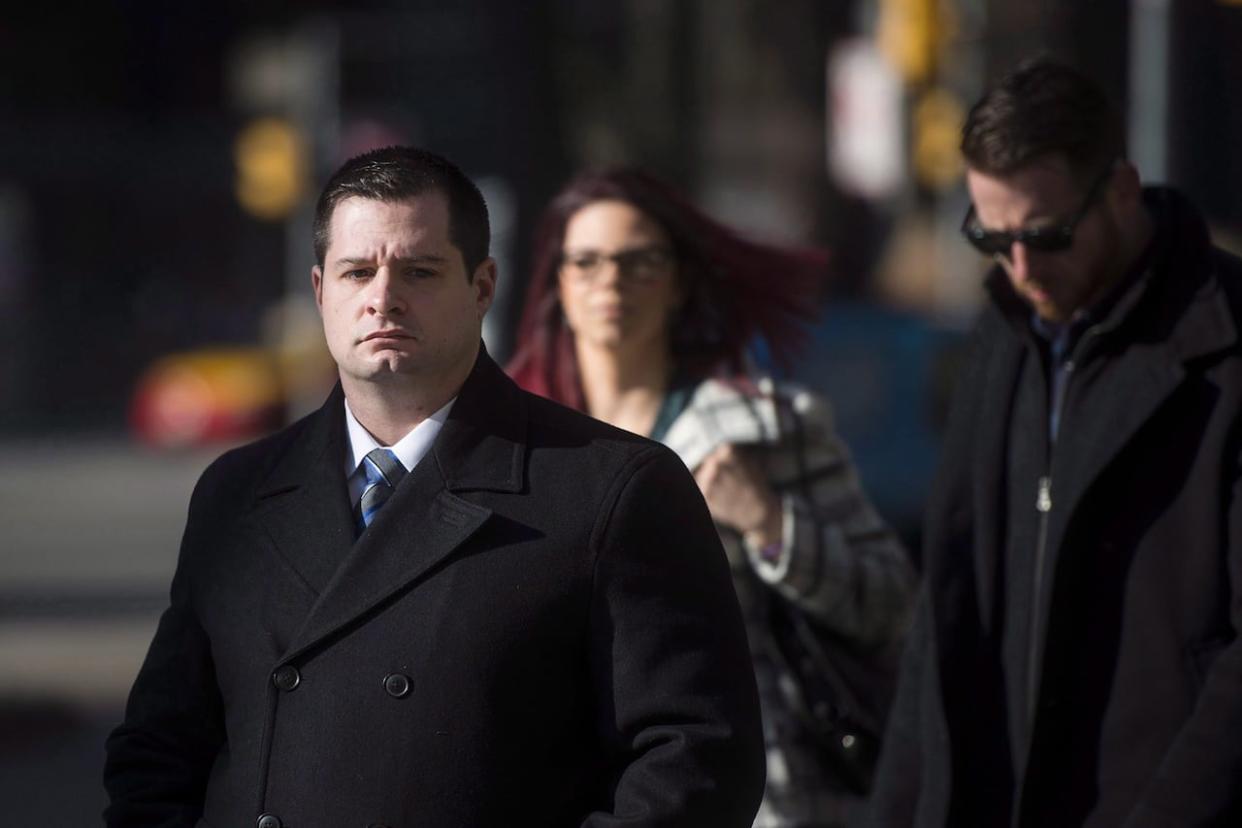Former cop who shot Sammy Yatim testifies Taser would have 'changed everything'

The former Toronto police officer who shot Sammy Yatim over a decade ago began testifying at a coroner's inquest Monday, telling the jury that easy access to a Taser would have made all the difference in the case.
When asked by inquest counsel Grace Alcaide Janicas if anything would have helped him make better decisions while on the job, James Forcillo said having a Taser when he encountered Yatim would have "changed everything.
"If I had access to a Taser, none of us would be here," he said.
Yatim was 18 when Forcillo shot him on an empty streetcar in July 2013. The teen, who was holding a small knife, was hit by two separate volleys of bullets.
During a criminal trial back in 2016, jurors acquitted Forcillo of second-degree murder related to the first round of shots, which the court heard had killed the teen. He was convicted of attempted murder related to the second volley, fired while Yatim was lying on his back.
Forcillo was sentenced to six-and-a-half years behind bars and was granted full parole in 2020.
Around the time Yatim died, only supervisors with Toronto police had access to Tasers, and on that night, there was a shortage of them available, Forcillo testified.
He argued limited Taser access was a "giant failure" on the part of the Ontario Solicitor General, but one that has since been remedied as conducted energy weapons are now more widely available to frontline officers.

Yatim was 18 years old when Forcillo shot and killed him. (Submitted by the Yatim family)
Jurors have been told that the inquest is meant to explore issues related to police decision-making and best practices in dealing with people in crisis, but not to review the events of that night or Forcillo's potential culpability.
Forcillo's testimony continues Tuesday.


